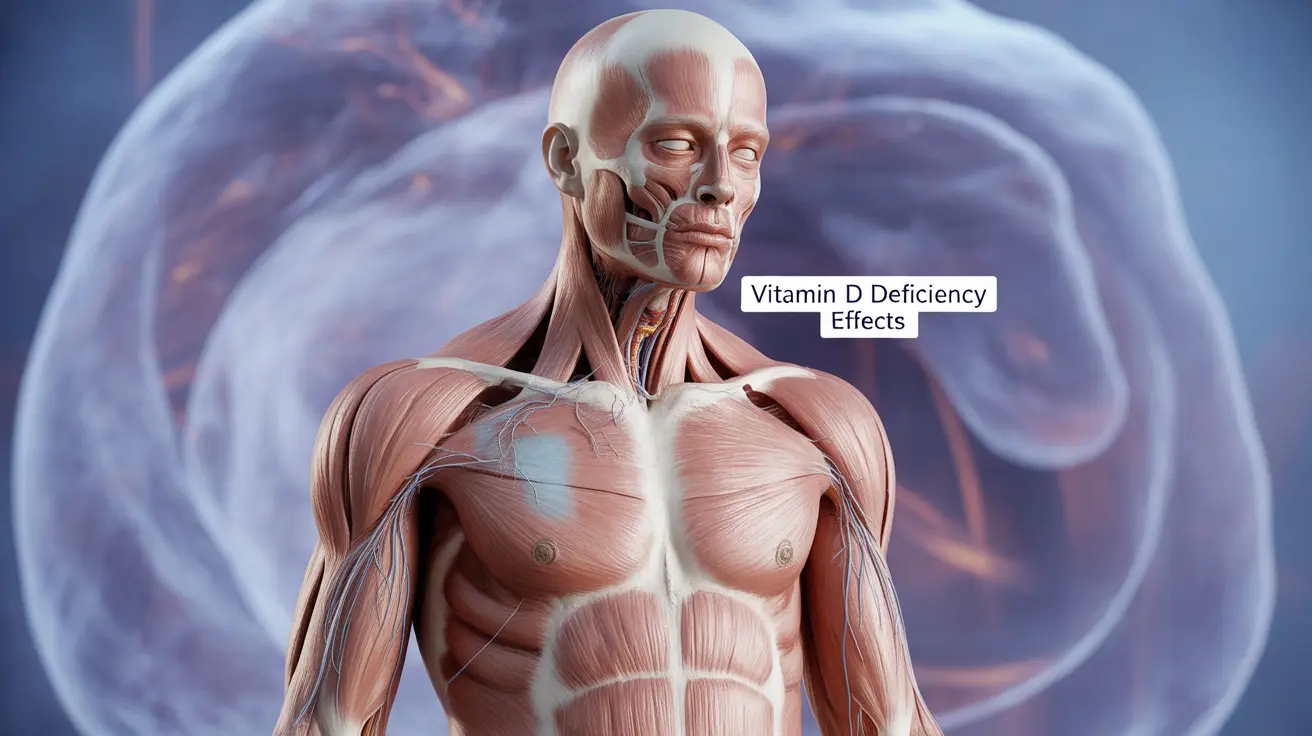Feeling tired and achy all over without running a fever can be both frustrating and concerning. This combination of symptoms can significantly impact your daily life and may signal various underlying conditions that require attention. Understanding the potential causes and knowing when to seek medical help is crucial for managing these symptoms effectively.
Common Causes of Body Aches and Fatigue
Several factors can contribute to experiencing body aches and tiredness without fever. Here are some of the most common causes:
Vitamin D Deficiency
A lack of vitamin D is a frequently overlooked cause of muscle pain and fatigue. Your body needs this crucial nutrient for proper muscle function, bone health, and energy metabolism. Common signs of vitamin D deficiency include:
- Persistent muscle aches
- Deep bone pain
- General fatigue and weakness
- Mood changes
- Increased susceptibility to infections
Chronic Fatigue and Fibromyalgia
These conditions often present with widespread body pain and extreme tiredness without fever. While they share similar symptoms, they are distinct conditions that require different treatment approaches.
Stress and Poor Sleep
Physical and emotional stress can manifest as body aches and fatigue. Poor sleep quality or insufficient rest can intensify these symptoms and create a cycle of discomfort and exhaustion.
Understanding Vitamin D's Role in Body Pain and Fatigue
Vitamin D plays a crucial role in maintaining muscle strength and overall energy levels. When your body lacks adequate vitamin D, you may experience:
- Muscle weakness and pain
- Increased inflammation
- Compromised immune function
- Reduced calcium absorption
- Lower energy levels
Risk Factors for Vitamin D Deficiency
Certain individuals are more likely to develop vitamin D deficiency:
- People with limited sun exposure
- Those with darker skin
- Older adults
- Individuals who are overweight or obese
- People following strict vegetarian or vegan diets
- Those with digestive disorders affecting nutrient absorption
Natural Ways to Boost Vitamin D Levels
If you're experiencing unexplained body aches and fatigue, consider these natural ways to increase your vitamin D intake:
Dietary Sources
- Fatty fish (salmon, mackerel, tuna)
- Egg yolks
- Fortified foods (milk, cereals, orange juice)
- Mushrooms exposed to UV light
- Beef liver
Lifestyle Changes
Incorporating these habits can help improve your vitamin D status:
- Safe sun exposure (10-15 minutes daily)
- Regular outdoor physical activity
- Maintaining a healthy weight
- Choosing vitamin D-fortified foods
When to Seek Medical Help
While some cases of body aches and fatigue may resolve with lifestyle changes, certain situations warrant medical attention:
- Symptoms persisting longer than two weeks
- Severe pain affecting daily activities
- Unexplained weight loss
- Difficulty sleeping
- Depression or anxiety symptoms
- Muscle weakness that progressively worsens
Frequently Asked Questions
Why do I feel tired and achy all over but don't have a fever?
This combination of symptoms can be caused by various factors, including vitamin D deficiency, chronic fatigue syndrome, fibromyalgia, stress, or poor sleep quality. Without a fever, these symptoms often indicate a non-infectious cause that requires proper evaluation.
Can low vitamin D cause muscle pain, fatigue, and tiredness, and how do I know if I'm deficient?
Yes, vitamin D deficiency can cause muscle pain, fatigue, and tiredness. The only reliable way to confirm a deficiency is through a blood test ordered by your healthcare provider. Common signs include muscle weakness, bone pain, and persistent fatigue.
What are the best foods and supplements to boost vitamin D if I have unexplained body aches and low energy?
The best dietary sources include fatty fish, egg yolks, and fortified foods. Supplements may be necessary, but dosage should be determined by your healthcare provider based on your blood levels and individual needs.
Who is most at risk for vitamin D deficiency, and what lifestyle or health factors increase my chances?
Those at highest risk include people with limited sun exposure, darker skin tones, older adults, and individuals who are overweight. Other risk factors include following a strict vegetarian diet or having conditions that affect nutrient absorption.
When should I see a doctor about persistent body aches, bone pain, and tiredness without fever?
Consult a healthcare provider if symptoms persist for more than two weeks, significantly impact your daily activities, or are accompanied by unexplained weight loss, progressive muscle weakness, or mental health changes.




